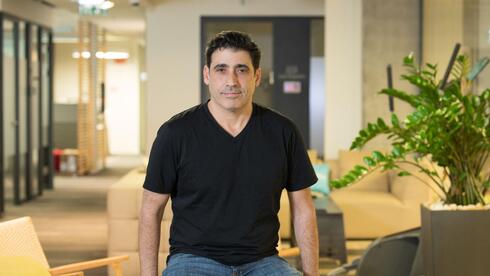
Opinion
Connected to the future: The quiet revolution of the Internet of Things
“IoT is expected to continue fundamentally changing the way we interact with the world around us, streamline processes, and manage information,” writes Alex Snitkovsky, CEO of Commit Software.
In recent years, the Internet of Things (IoT) has become one of the most rapidly developing and influential fields in the world of technology. This domain, which combines a wide range of disciplines such as hardware, software, cloud computing, information security, data analysis, and artificial intelligence, is reshaping the way we interact with our physical and digital environments. Today, almost every household or industrial device aspires to be "smart" and connected, leading to a dramatic increase in demand for IoT solutions.
Recent data indicates impressive growth in the field. In 2024, the number of IoT-connected devices reached approximately 14 billion worldwide, with forecasts pointing to an expected growth to 30 billion by 2030. This is happening partly due to the adoption of IoT technologies by major industries such as automotive, manufacturing, factories, smart homes, and more. This growth poses significant challenges for the industry, including the need for rapid scalability, advanced information security, and the ability to integrate diverse systems and devices. Additionally, the demand for faster development speeds and lower costs is leading to substantial changes in how companies design and develop IoT solutions.
One of the significant changes in the field is the shift from custom development to generic and flexible platforms. In the past, IoT projects required a long and expensive process of requirements analysis, design, and specific development for each client. Today, the emphasis is on developing platforms that provide a broad common denominator for a variety of customers, with the most successful among them allowing customization for specific needs. This change enables shorter time-to-market and more efficient responses to changing market demands.
The integration of cloud technologies, such as AWS IoT Core, has become a critical component in modern IoT solutions. These platforms provide the scalability, security, and flexibility required to support millions of connected devices. Moreover, they allow for easier integration with advanced services such as artificial intelligence and real-time data analysis, expanding the capabilities and value of IoT solutions.
One of the significant challenges in the field is integration with diverse edge devices, some of which were developed "in-house" and not according to common protocols. Leading companies in the field are developing solutions for this, using SDKs from cloud providers, and creating collaborations with local and international suppliers to provide a broad envelope of rapid solutions for their customers. This approach joins the trend of leading technology companies in the field to provide comprehensive end-to-end solutions, addressing not only the technical aspect of IoT but also the business and operational needs of customers, such as end-user applications, security issues, software solutions, and more.
The outlook for the coming years indicates continued accelerated growth in the IoT field. Forecasts show that the global IoT market is expected to reach $1.6 trillion by 2025. Future trends include deeper integration of artificial intelligence in IoT devices, the development of uniform standards to improve compatibility between systems, and significant advancements in information security, including the use of technologies such as blockchain. Additionally, wider adoption of IoT in industry (IIoT) is expected, leading to significant improvements in the efficiency and productivity of factories and manufacturing processes.
IoT is expected to continue fundamentally changing the way we interact with the world around us, streamline processes, and manage information. The field offers many opportunities for innovation and growth while posing fascinating challenges for developers, engineers, and business managers alike. Therefore, it's likely that we will continue to see developments and innovations in this area in the coming years.
The author is the CEO of Commit Software















